These background studies provided valuable information/inputs which significantly contributed towards drafting the Second Perspective Plan. These studies are rich in contents and, if made available, will enrich the knowledge base relating to development challenges and development options facing Bangladesh. In view of the importance of these studies, it has been decided that GED will publish these studies for making these available to interested readers, researchers and academia. The background papers have been published in six separate volumes. It is expected that these volumes will help the readers to understand the rational for the choice of the specific domain underlying the Plan and the design of the policy package adapted for the Plan for reconciling the goals of effiency with those of equity. The studies attempted to spell out a reform strategy and agenda for agriculture, food security, industrialization, poverty reduction, social inclusion, transportation, quality infrastructure, sustainable management of natural resources, and other development issues like governance, gender, urban development, service sector development, health and population management, human development, ICT and information highway, employment and labour market in the light of current conditions as well as past experience trends.
Found 160 Results From
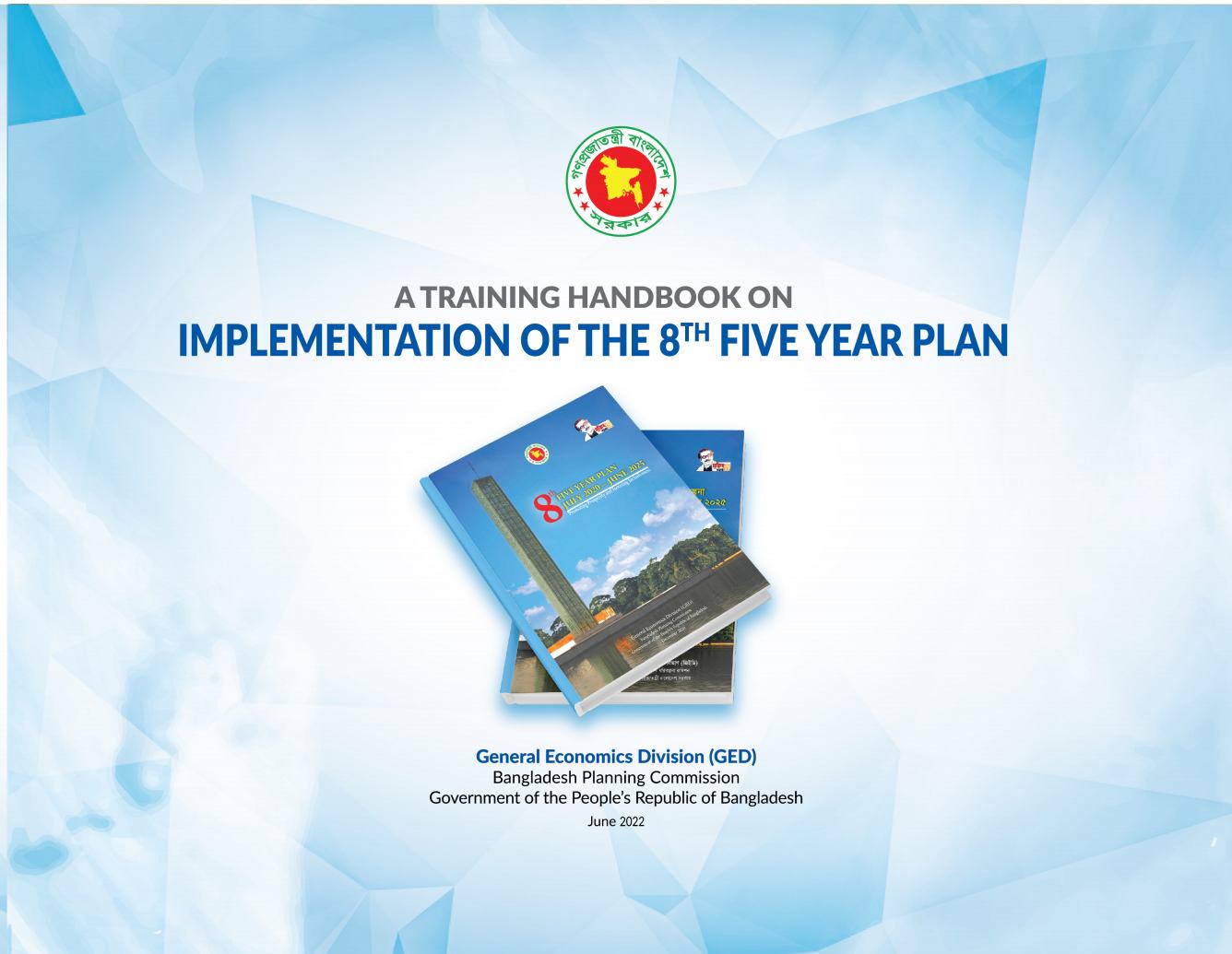
A TRAINING HANDBOOK ON IMPLEMENTATION OF THE 8TH FIVE YEAR PLAN
 August 24, 2022
August 24, 2022 The Handbook will act as a guideline for identifying future projects/programmes in attainting quantitative and qualitative targets set in the 8FYP. Besides, the Ministries/Divisions can use it to monitor the progress based on the targets set in the 8FYP. This Handbook is the second of its kind since the introduction of Five-Year Plan in Bangladesh. The fist one was prepared during the Seventh Five Year Plan period. However, GED is organizing a series of training workshops for the Govt. officials on the “Implementation of the 8FYP & SDGs”. This document will help the officials to be acquainted with their respective Ministry’s objectives/targets to be attained during the plan period. GED hopes that in accordance with this Handbook, the Ministries/Divisions will expedite actions to implement their respective targets.
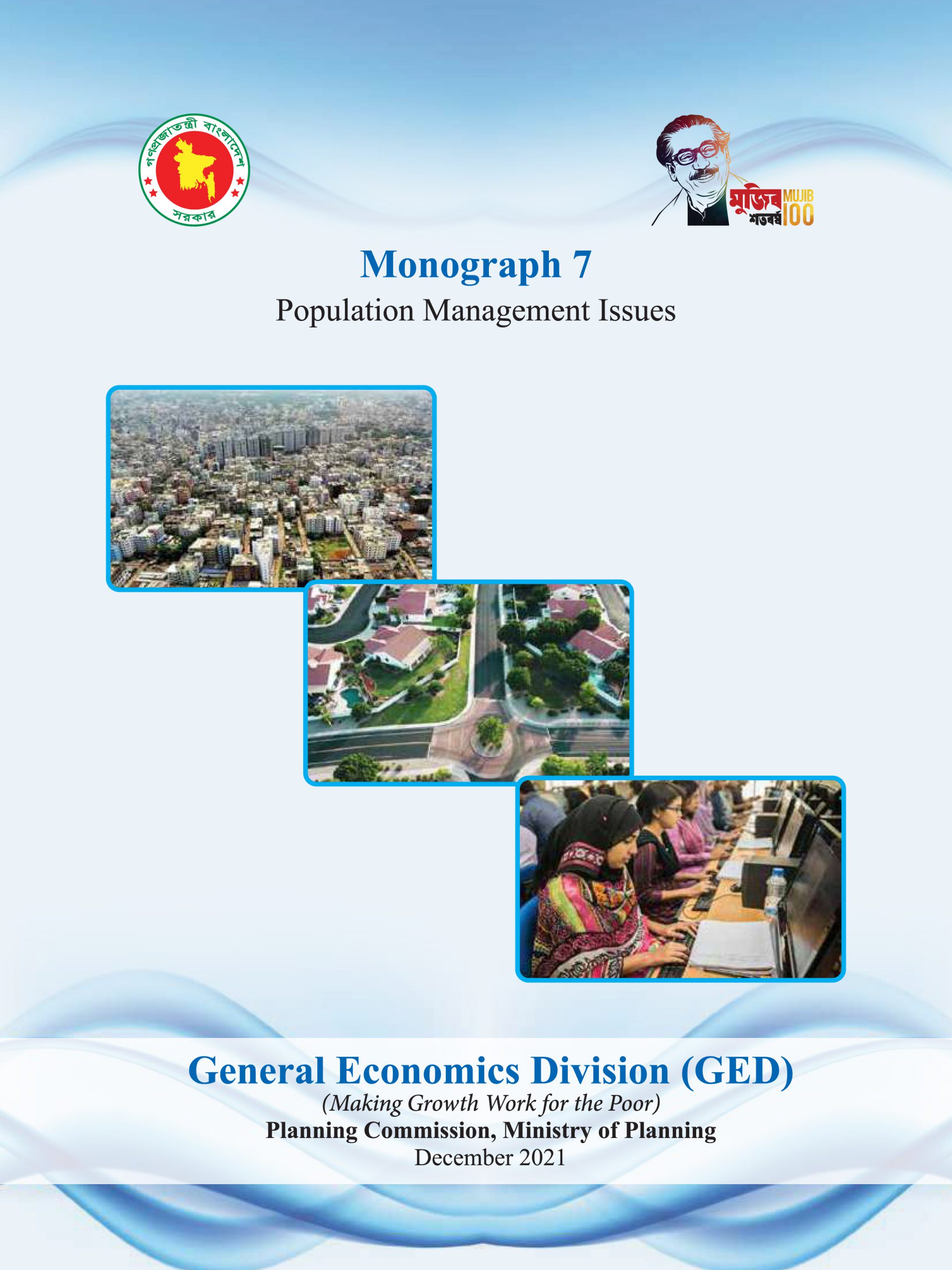
Monograph 7: Population Management Issues
 August 24, 2022
August 24, 2022 The General Economics Division (GED) acknowledges the valuable contribution of all concerned from the Ministries/Division, Development Partners, NGOs, and CSOs in preparing the Monograph-7. The GED carried out the task under the close guidance of the Hon'ble Member (Secretary), GED. I also appreciate the United Nations Population Fund (UNFPA) for providing necessary technical and financial support in preparing and printing the Monograph through the "Strengthening Capacity of the General Economics Division (GED) to Integrate Population and Development Issues into Plans and Policies (IPDIPP)" Project. The Monograph-7 has been prepared by compiling three policy papers and the outcomes of the policy dialogues conducted by the IPDIPP project on- i) Strategic Framework to Reap Demographic Dividend through the Implementation of the 8th Five Year Plan; ii) Addressing gender differentials in labor force participation to reap the demographic dividend in Bangladesh, and iii) Urban Sustainability Through Good Population Density Approach.
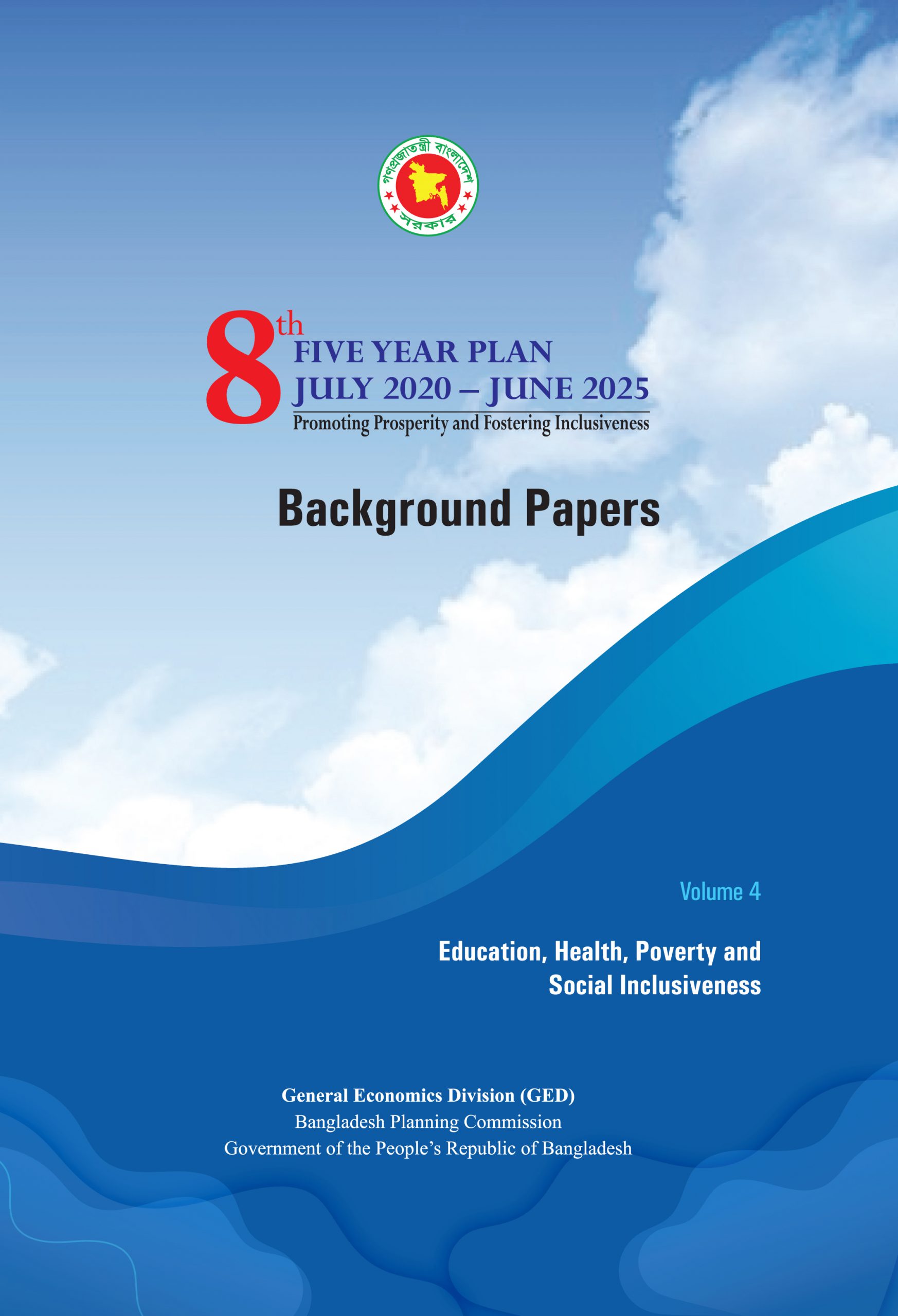
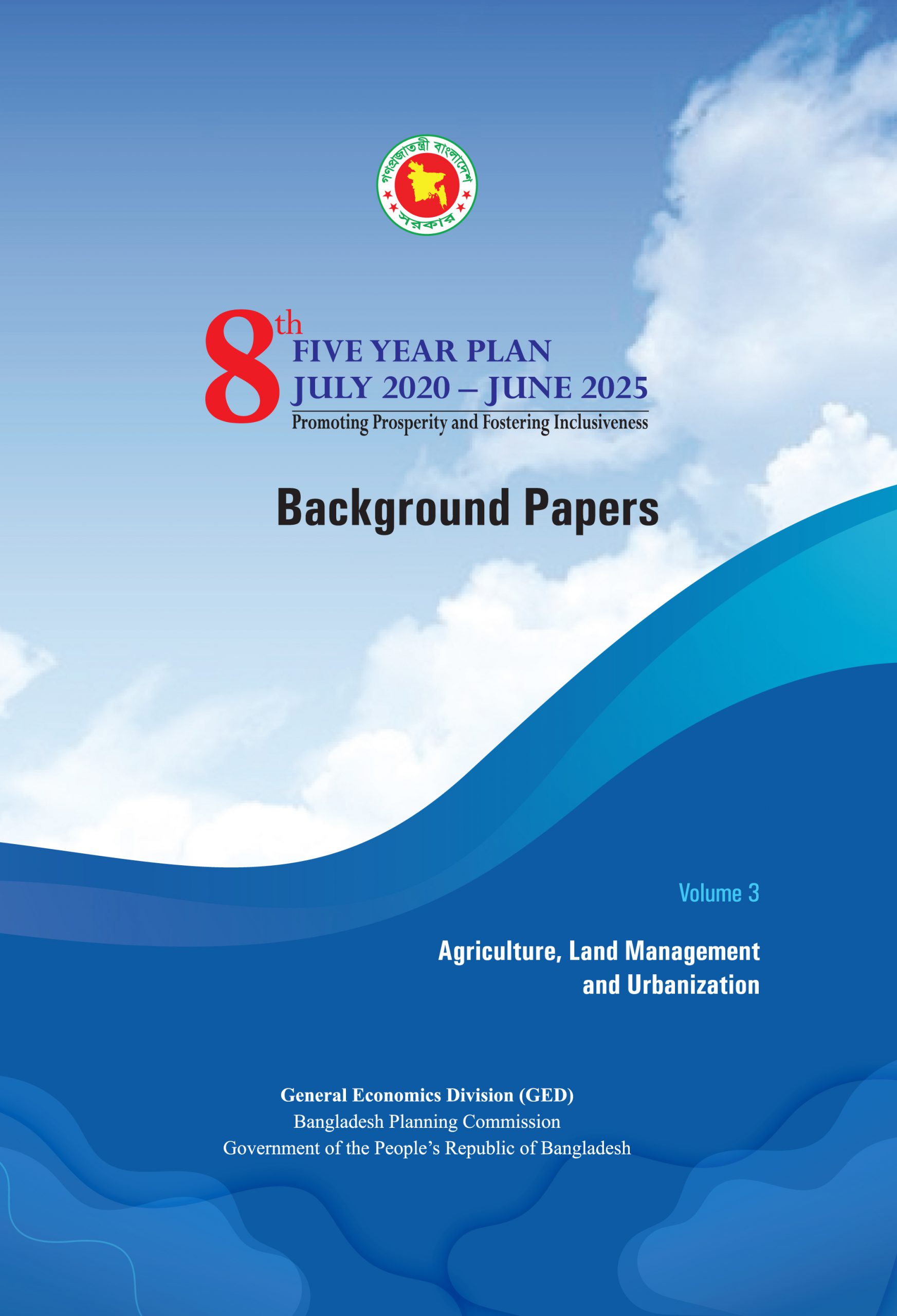

Background Studies, Volume -2 | Trade and Industry
 August 3, 2022
August 3, 2022 The preparation of Eighth Five Year Plan (8FYP) was commissioned in 2019. Initially, a ‘National Steering Committee’ was formed under the chairmanship of the Hon’ble Minister of Planning to oversight the preparation of the plan. A Panel of Economists’, under the chairmanship of Dr. Wahiduddin Mahmud, was also formed comprising luminous Bangladeshi economists, sociologists, educationalists and experts on relevant filds, who gave continuous support in shaping the 8FYP. In this important initiative, General Economics Division (GED) ensured partnership of all the ministries/divisions/agencies, policy makers, academia, civil society organizations, NGOs, development partners, thinktanks and thought leaders in formulating this plan. A total of twenty (20) background studies were conducted with the help of the eminent experts in their respective filds. As GED is going to publish the background studies in 05 volumes, it would like to exert its gratitude to all the stakeholders involved.
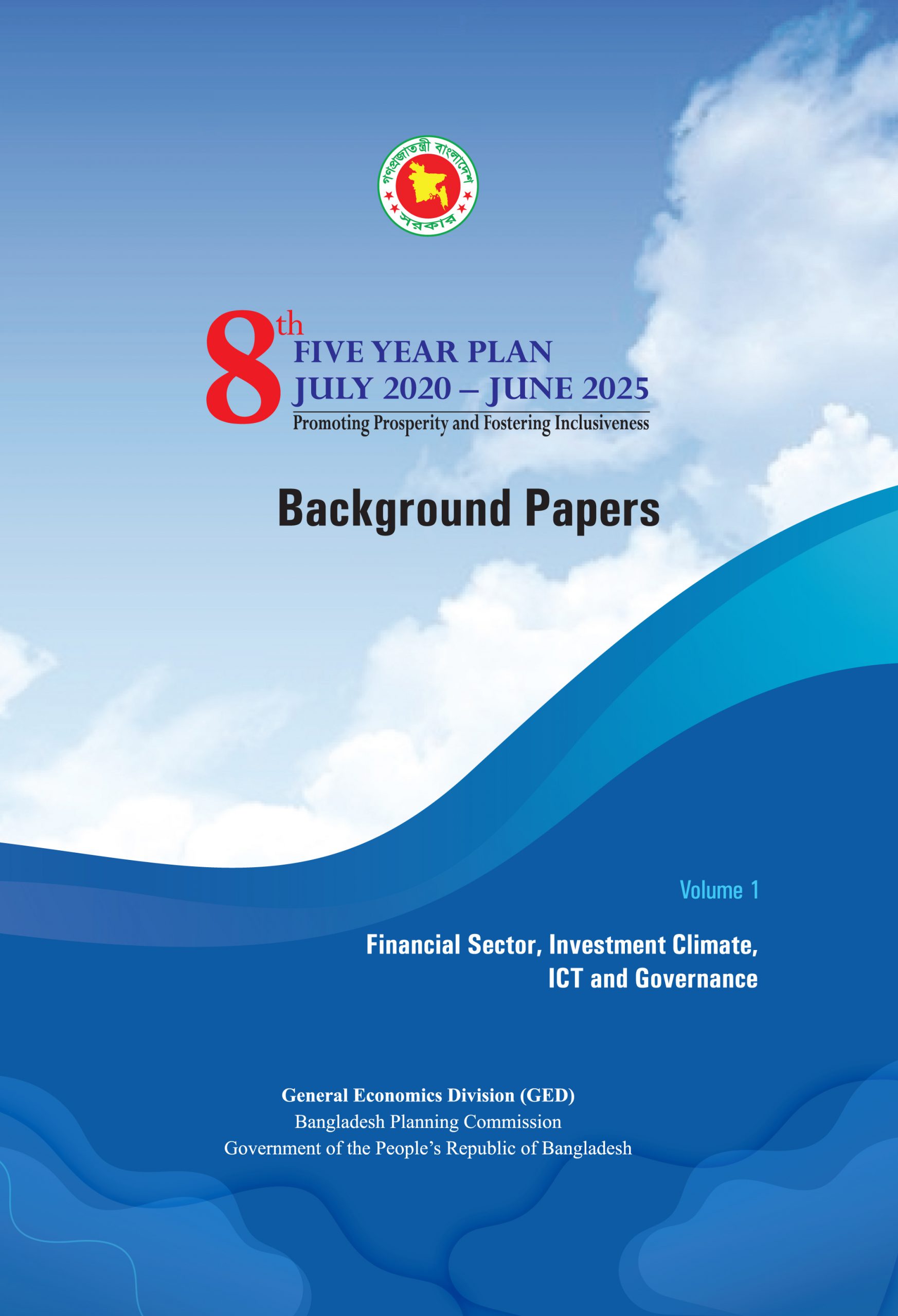
Background Studies, Volume -1|Financial Sector, Investment Climate, ICT and Governance
 August 3, 2022
August 3, 2022 The preparation of Eighth Five Year Plan (8FYP) was commissioned in 2019. Initially, a ‘National Steering Committee' was formed under the chairmanship of the Hon’ble Minister of Planning to oversight the preparation of the plan. A Panel of Economists’, under the chairmanship of Dr. Wahiduddin Mahmud, was also formed comprising luminous Bangladeshi economists, sociologists, educationalists and experts on relevant filds, who gave continuous support in shaping the 8FYP. In this important initiative, General Economics Division (GED) ensured partnership of all the inistries/divisions/agencies, policymakers, academia, civil society organizations, NGOs, development partners, thinktanks and thought leaders in formulating this plan. A total of twenty (20) background studies were conducted with the help of the eminent experts in their respective filds. As GED is going to publish the background studies in 05 volumes, it would like to exert its gratitude to all the stakeholders involved.
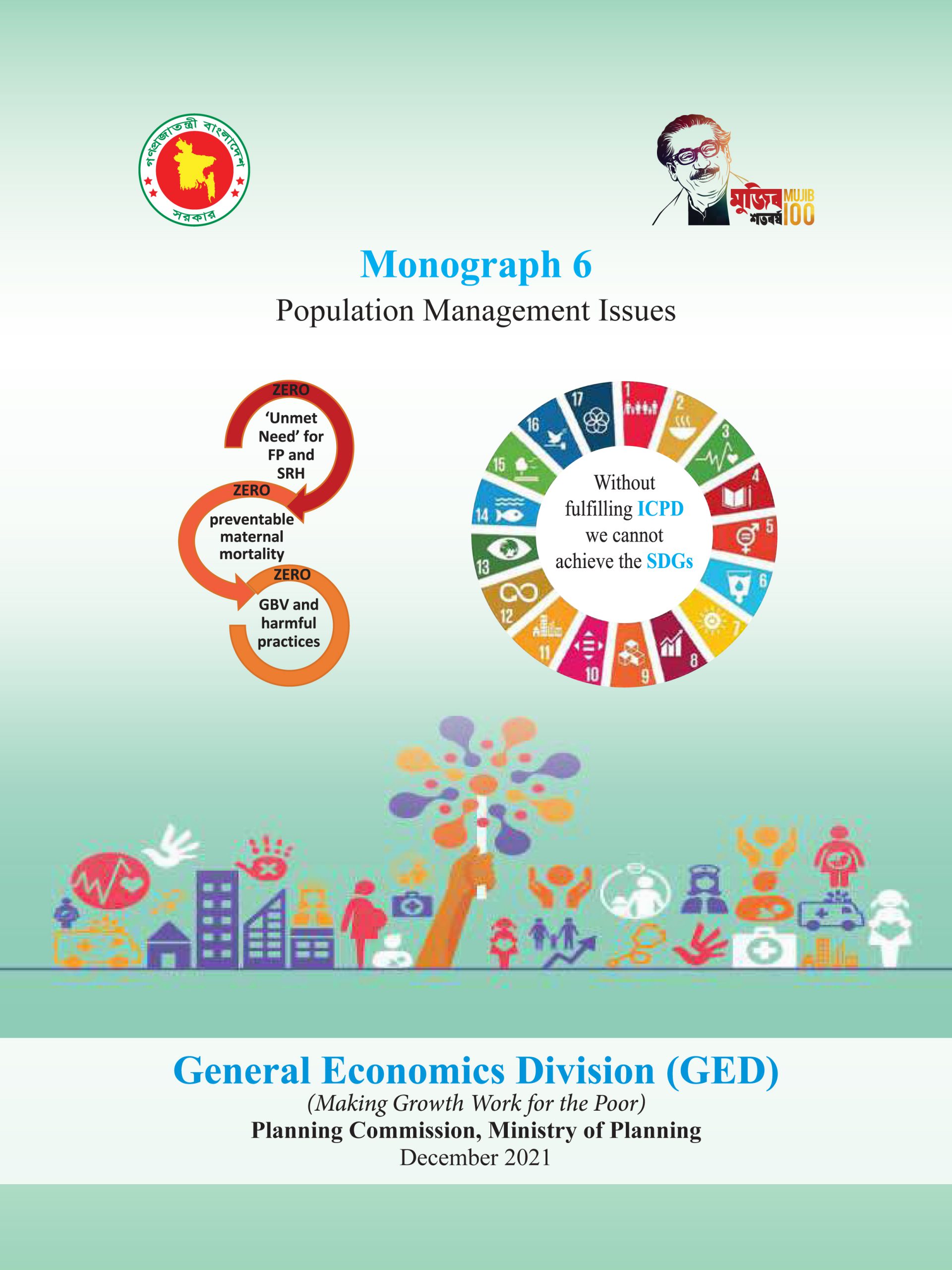
Monograph 6: Population Management Issues
 August 2, 2022
August 2, 2022 Population goals have been reset at 3 zeros-zero 'unmet need' for FP and SRH, zero preventable maternal mortality, and zero gender-based violence and harmful practices. Bangladesh has a well-recognized history of achievements on population goals but near-term trends underscore the complexity of 'last mile' challenges. Significant service disruptions during the Covid-19 pandemic have exposed the systemic weaknesses of FP and SRH services. Compounding such weaknesses are conflicting policy signals on population goals one of whose unintended consequences has been a decay in the field presence of the family planning workforce. A systemic vacuum in urban primary healthcare and lack of government oversight over the dominant role of the private sector in FP and MNCH also serve as critical barriers to realizing the commitments for 3 zeroes. Policy and action priorities derived from an effective reading of ground realities are a strategic urgency. The approach has to be one of the phased action plans, innovative engagement with key stakeholders including the youth, and policy advocacy to establish broad policy buy-in
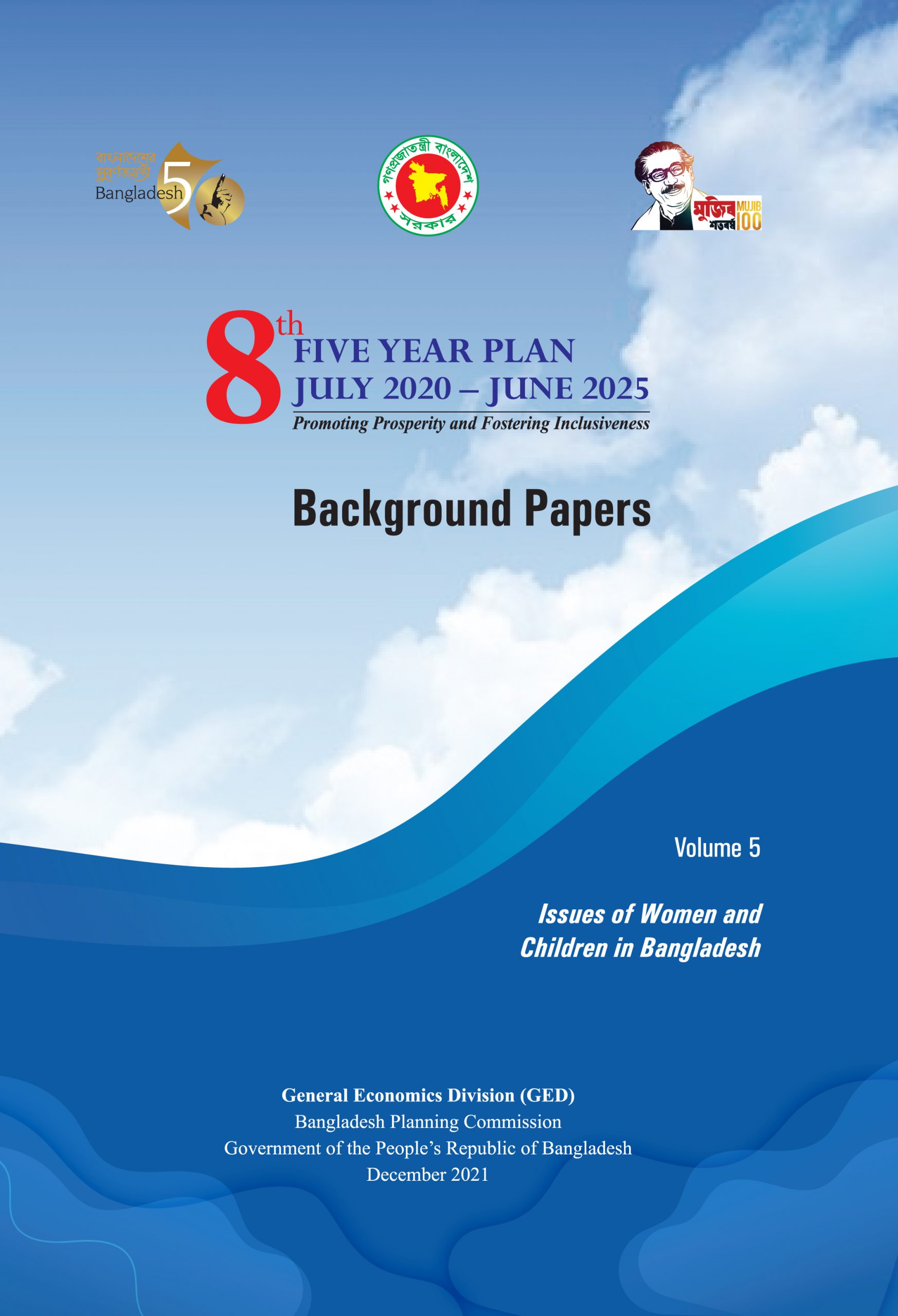
Background Studies of 8FYP, Volume -5
 July 31, 2022
July 31, 2022 Bangladesh has achieved impressive success in many developmental indicators in the recent past. The country has already achieved the status of a lower middle-income country and set an ambitious goal of reaching the upper middle-income status by 2030. Endowed with young demography, children aged 0-17 constitute 36 percent of the total population in Bangladesh. According to BBS (2015), the share of children (0-14) accounts for about 30 percent of the total population in 2018. This large number of children will join the workforce in the coming decades and play a vital role in the country’s achievement of its national goals, such as Vision 2041. Therefore, ensuring children’s well-being and upholding their rights must be considered national priorities in Bangladesh. The country’s commitment to achieving the Sustainable Development Goals (SDGs) and various national development strategies such as the five-year plans also require that attention is given to preserving child rights and ensuring their security and protection from all forms of violence, disease, and abuse.
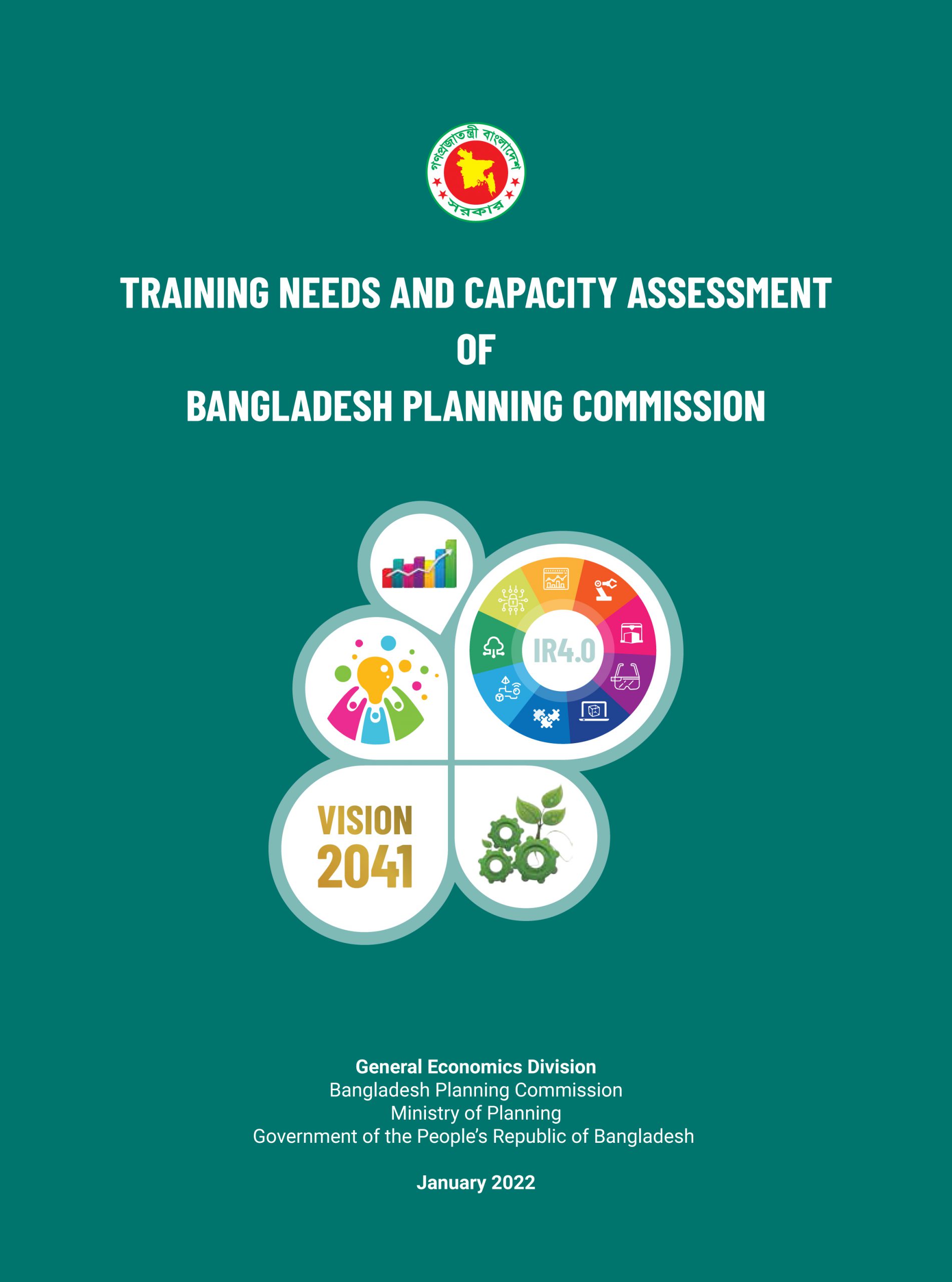
Training Needs and Capacity Assessment of Bangladesh Planning Commission
 July 25, 2022
July 25, 2022 Training Needs and Capacity Assessment (TN&CA) study conducted across the Sector Divisions (SDs) of Bangladesh Planning Commission (BPC) is the first and inimitable attempt to assess the capacity and skill of the SDs for effiently handling the sectoral performance. It is accomplished under the project “Strengthening the Capacity of Development Planning Superstructure for Achieving the Developed Country Status (1st Revised)” being implemented by General Economics Division (GED). The report has portrayed the present status of training organized by the SDs and identified the future needs for capacity enhancement and skill development of the individual officers and the SDs as a whole. Findings of the assessment, as encapsulated in this report, have provided guidelines with regard to the issues pertaining to skill development and categorized future training plan of the SDs. The report has identified the gaps in the training with an objective of sustainability.
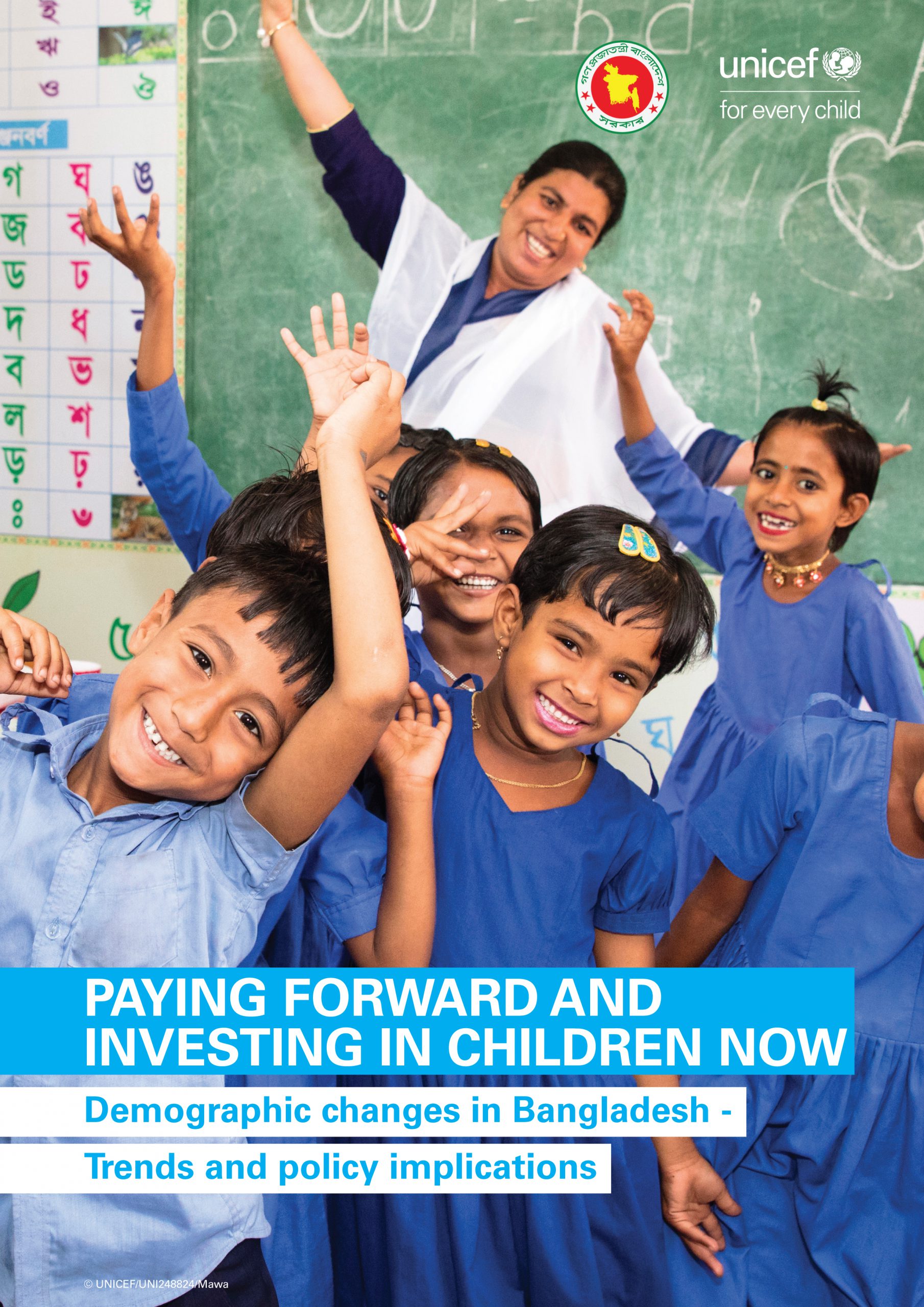
PAYING FORWARD AND INVESTING IN CHILDREN NOW | Demographic changes in Bangladesh Trends and policy implications
 July 24, 2022
July 24, 2022 The shift from a high mortality and high fertility society to a low mortality and low fertility society is a positive development and a great achievement for Bangladesh
DOWNLOAD
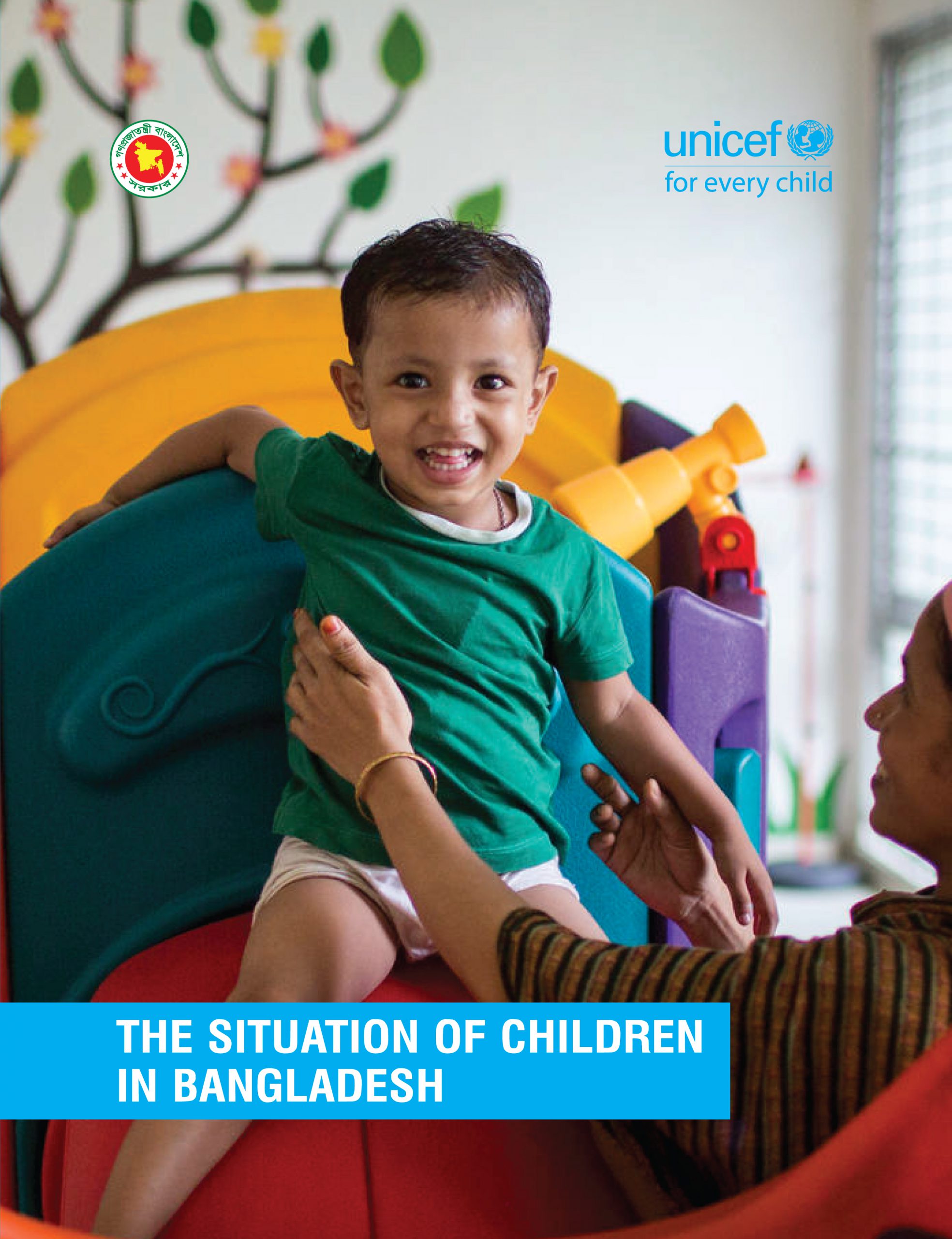
THE SITUATION OF CHILDREN IN BANGLADESH
 July 24, 2022
July 24, 2022 The Situation of Children in Bangladesh (SiTan) in the Context of Eight Five-Year Plan of Bangladesh
Bangladesh has made significant strides in its quest for growth and economic development. The average growth rate over the last ten years has been among the fastest in the world at 5.2 percent (year-on-year). The country’s GDP per capita touched the 1,000 USD milestone in 2014 and rose to 1,906 USD in 2019. Recent figures showed that Bangladesh had the highest Global GDP growth projection for 2020 – outshining its neighbors in South and South East Asia.
DOWNLOAD

CHILDREN ON THE MOVE: A RAPID ASSESSMENT AND POLICY ISSUES FOR BANGLADESH
 July 21, 2022
July 21, 2022 The ever-growing phenomenon of children on the move has become a matter of concern across the world. Most of these children are deprived of their rights which are enshrined in the United Nations Convention on the Rights of the Child (UNCRC). Although there exist definitional divergences, these children are generally those who are international or internal migrants, internally displaced or asylum seeking or refugees. 1 It is estimated that about 50 million children are on the move worldwide. 2 This figure is likely to be hugely underestimated, as it considers only those who have migrated across borders or been forcibly displaced within their own countries due to violence and conflicts, and does not take into consideration other factors in the movement of children.
Download
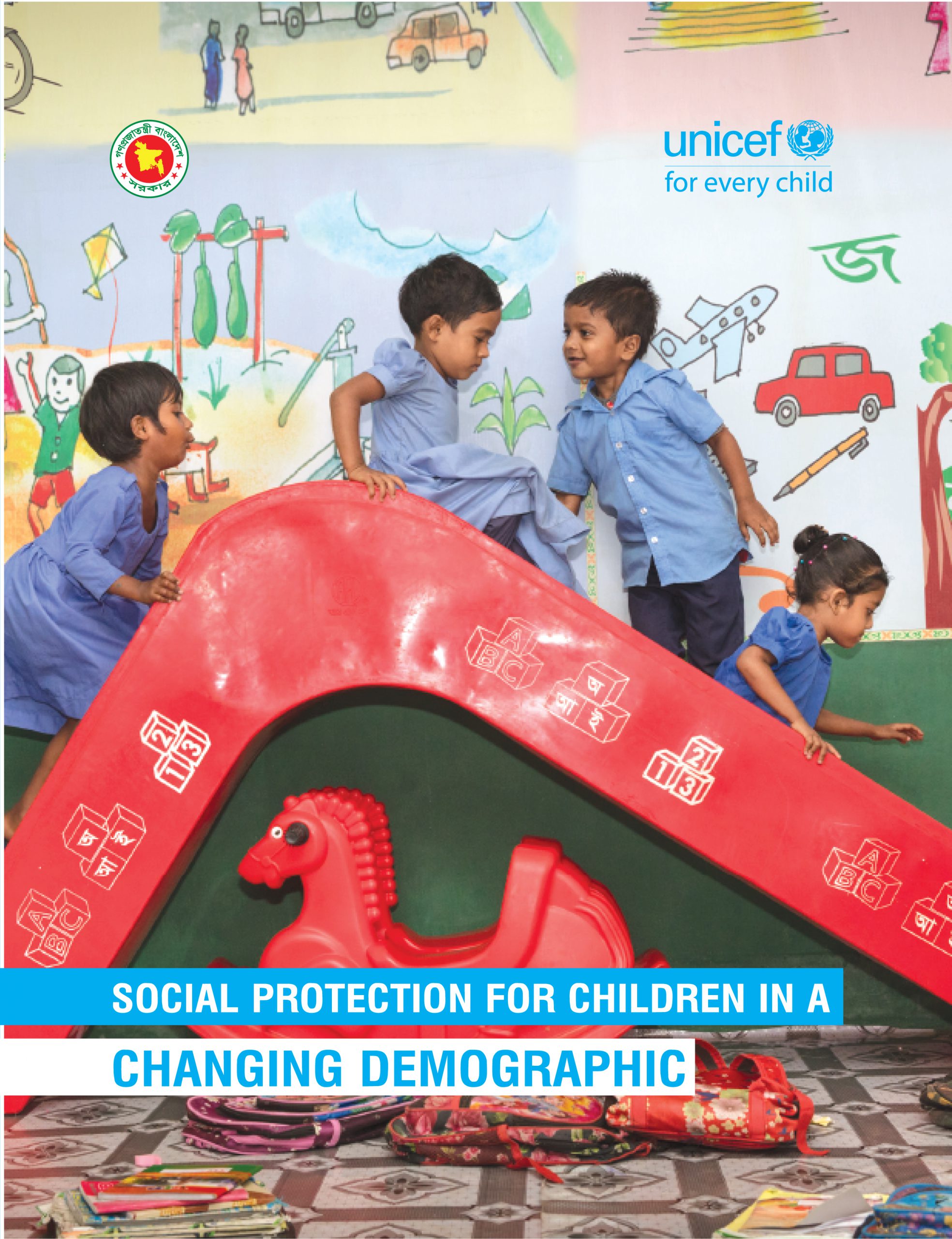
SOCIAL PROTECTION FOR CHILDREN IN A CHANGING DEMOGRAPHIC
 July 21, 2022
July 21, 2022 Social Protection for Children in a Changing Demographic
Despite the high levels of poverty and non-monetary deprivations among children, social protection coverage for children is low and disproportionate compared to other age groups. Given the high level of deprivations and return to investment in early years of life is highest, Bangladesh must revisit its SP system to achieve an appropriate balance.
Download
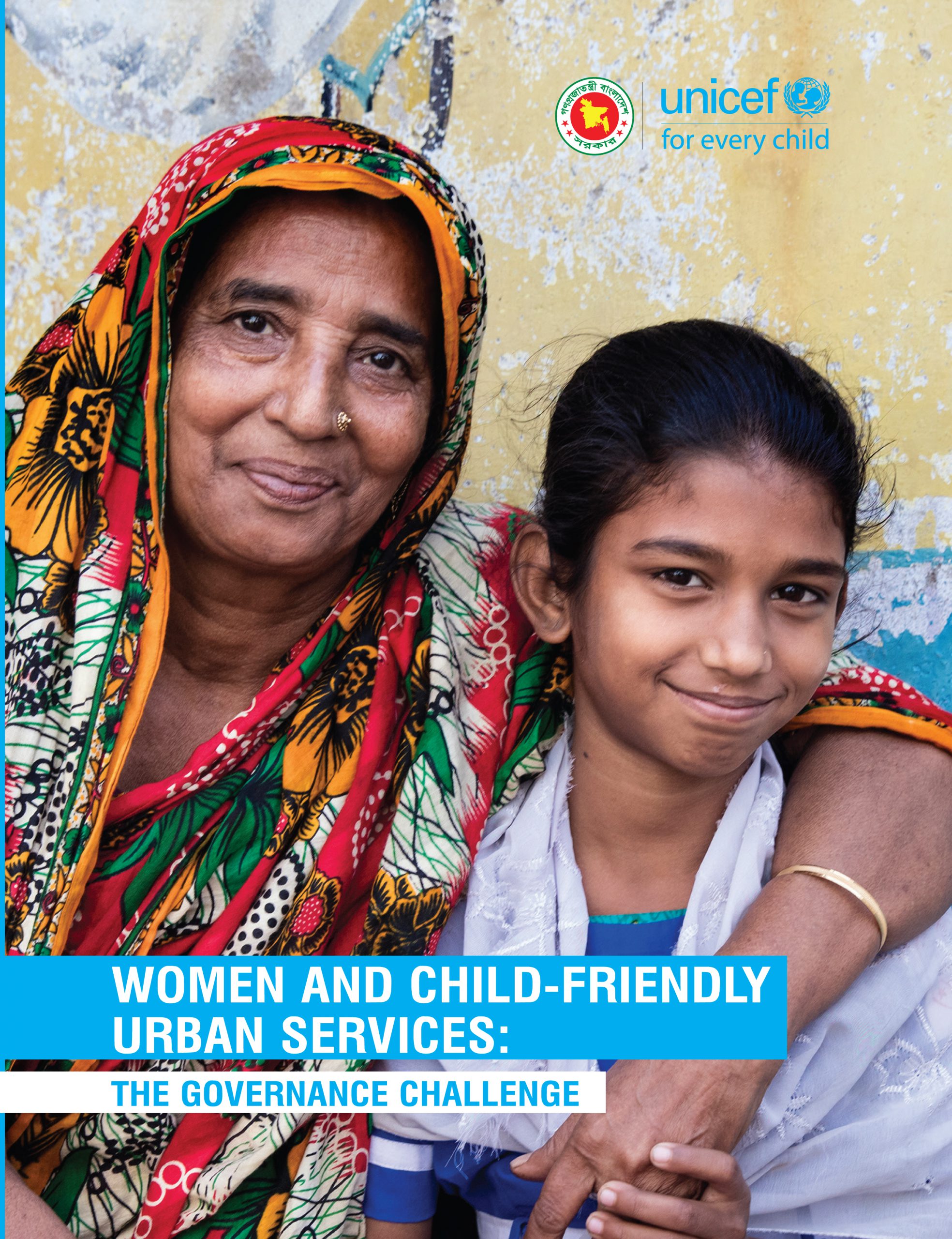
WOMEN AND CHILD-FRIENDLY URBAN SERVICES: THE GOVERNANCE
 July 21, 2022
July 21, 2022 Bangladesh faces a critical challenge is rapidly urbanizing, of transforming its cities into drivers of equitable economic opportunities and quality living. This emerging urban landscape is particularly challenging for women and children, who face endemic structural and social inequities in their access to urban services, as well as in their routine social and economic existence. The governance challenges in improving urban services are both entrenched and poorly comprehended. An innovative governance framework, and the juxtaposition of beneficial and provider perspectives, can serve to identify the promising pathways for women and child-friendly urban services.
Download
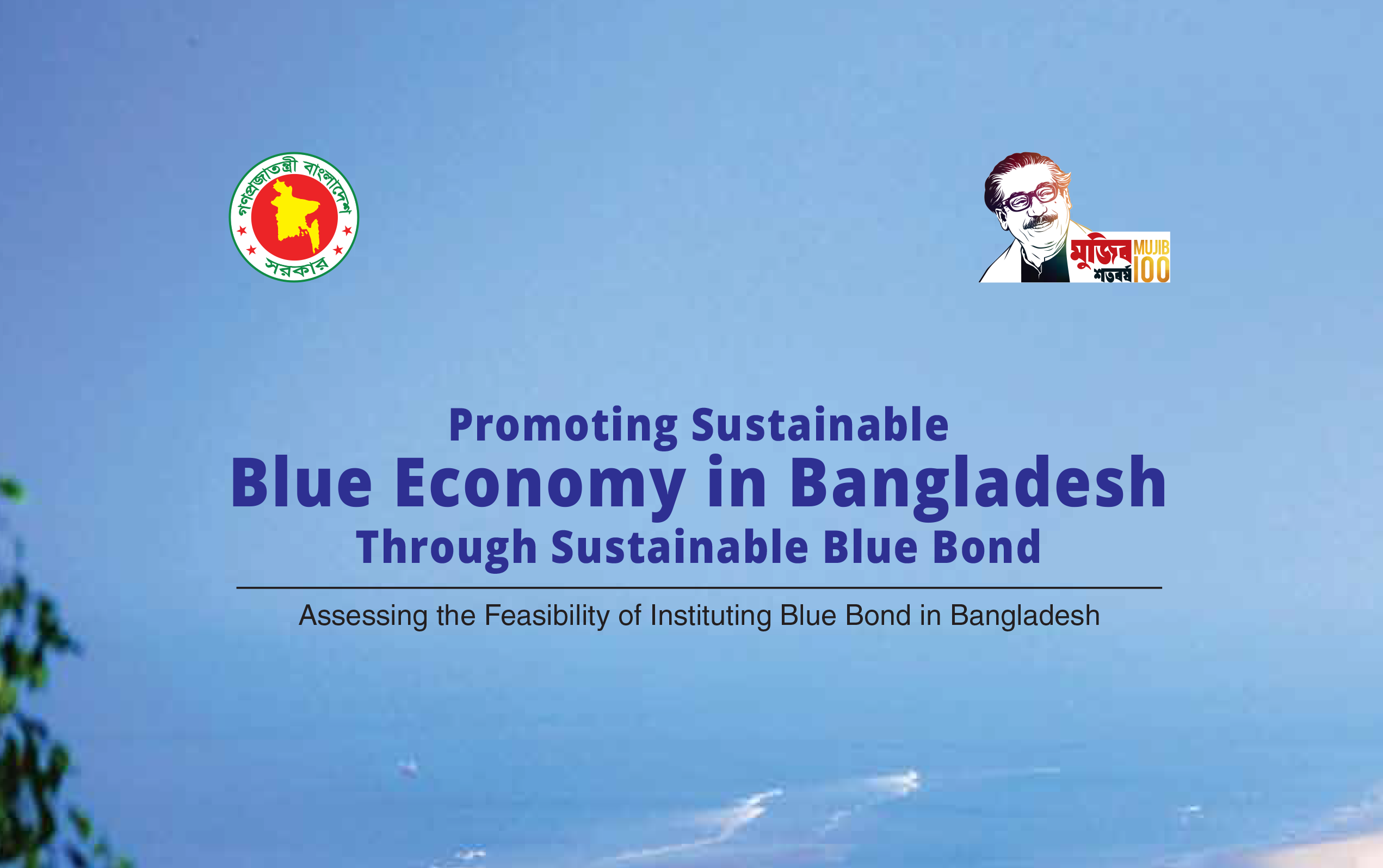
Assessing the Feasibility of Instituting Blue Bond in Bangladesh
 June 8, 2022
June 8, 2022 This report critically evaluates the possibility of promoting the blue economy in Bangladesh through the issuance of blue bonds. The report discusses the blue economy, sustainable and innovative financing strategies, and sustainable bonds for sustainable financing, especially blue bonds. Besides, it explains the opportunities and challenges to initiate the blue bond in the bond market of Bangladesh. In the end, the report proposes required policy actins to introduce blue bonds in the bond market of Bangladesh to finance ocean-based projects and support a sustainable blue economy in the country.
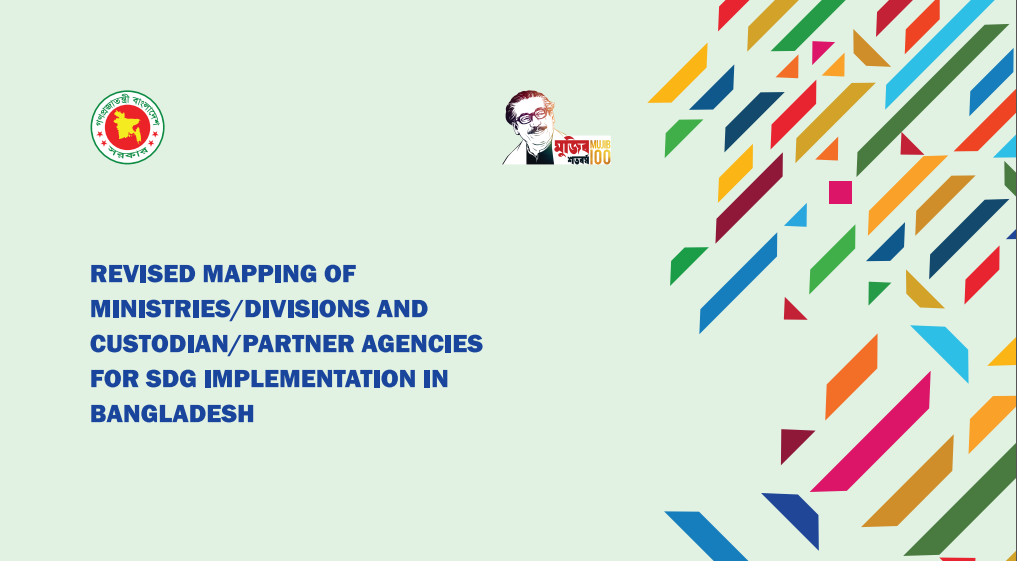
Revised Mapping of Ministries/Divisions and Custodian Partner Agencies for SDG Implementation in Bangladesh
 May 16, 2022
May 16, 2022 The first mapping handbook “Mapping of Ministries by Targets in the implementation of SDGs aligning with 7th Five Year Plan (2016-20)” was first published in September 2016. This document has been revised mainly for four reasons- 1. Global Indicator Framework has been revisited drastically by the UNSD; 2. A number of ministries have been divided into several divisions; 3. Goal-wise coordinating ministry/division has been assigned by the PMO; 4. this mapping is also warranted to be synced with the custodianship of the international agencies as they can provide us with expertise from around the globe in debunking metadata and generation of new data. See the full document here- Revised Mapping of Ministries/Divisions and Custodian/Partner Agencies for SDG Implementation in Bangladesh
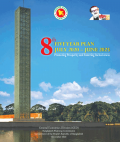
8th Five Year Plan (English Version)
 April 15, 2022
April 15, 2022 The preparatory process of the Eighth Five Year Plan is marked by the infestation of the major global catastrophe ‘COVID-19’, which has caused consequential economic conundrum across the world. The Eighth Five Year Plan is unique compared to its preceding two plans as it blends the COVID-19 recovery strategies in the macroeconomic framework as well as developing sectoral strategies in the plan. The government was in strong favor of the continuation of the Five Year Plan instead of formulating a separate COVID-19 response plan as discontinuation of the Five Year Plan could slow down the ongoing development initiatives of the government, which are extremely essential to face the challenges of LDC graduation, to meet the targets of SDGs and to fulfill the aspiration of the Vision 2041. Besides, the implementation of the Perspective Plan (PP) 2021-2041 is envisaged in four ‘Five Year Plans’; the first quinquennium starts with the Eighth Five Year Plan. Hence, the main objective of the Eighth Five Year Plan is to start the implementation of PP2021-2041 in a way that brings Bangladesh closer to the goals of achieving UMIC status by 2031 and attaining SDGs targets through managing the challenges of LDC graduation, which will also help to eliminate extreme poverty by 2031.
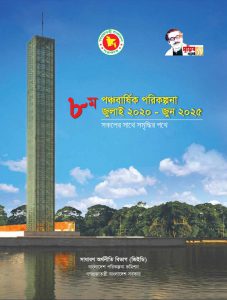
8th Five Year Plan (Bangla Version)
 August 17, 2021
August 17, 2021 অষ্টম পঞ্চবার্ষিক পরিকল্পনা প্রণয়ন প্রস্তুতি ২০১৯ সালে শুরু হয়। সূচনালগ্নে, পরিকল্পনাটি প্রণয়নের সার্বিক প্রস্তুতি তদারকির জন্য মাননীয় পরিকল্পনা মন্ত্রীর সভাপতিত্বে একটি জাতীয় স্টিয়ারিং কমিটি গঠন করা হয়েছিল। ড. ওয়াহিদউদ্দিন মাহমুদের সভাপতিত্বে অর্থনীতিবিদ প্যানেলও তৈরি করা হয়, যেখানে দেশের খ্যাতনামা অর্থনীতিবিদ, সমাজবিজ্ঞানী, শিক্ষাবিদ এবং প্রাসঙ্গিক ক্ষেত্রের বিশেষজ্ঞ অন্তর্ভুক্ত ছিলেন, যারা অষ্টম পঞ্চবার্ষিক পরিকল্পনা তৈরিতে অব্যাহত সমর্থন ও সহায়তা দিয়েছেন। এই মহতী উদ্যোগে অর্থাৎ পরিকল্পনাটি প্রণয়নের ক্ষেত্রে জিইডি সরকারের সকল মন্ত্রণালয়/বিভাগ/সংস্থা, নীতি নির্ধারক, একাডেমিয়া, সিভিল সোসাইটি, এনজিও, উন্নয়ন সহযোগী, থিংক ট্যাঙ্ক এবং নতুন চিন্তকদের অংশীদারিত্ব নিশ্চিত করেছে। স্ব স্ব ক্ষেত্রে সর্বজন শ্রদ্ধেয় বিশেষজ্ঞদের সহায়তায় মোট ২৫টি ব্যাকগ্রাউন্ড স্টাডিও সম্পন্ন করা হয়। অষ্টম পঞ্চবার্ষিক পরিকল্পনায় সর্বাধিক গুরুত্ব পেয়েছে সংশ্লিষ্ট মন্ত্রণালয়/বিভাগসমূহ হতে প্রাপ্ত হালনাগাদ তথ্যসমূহ।

PERSPECTIVE PLAN OF BANGLADESH 2021-2041
 August 17, 2021
August 17, 2021 the government has adopted Vision 2041 that is a continuation of Digital Bangladesh Vision 2021 and seeks to take the nation to the development path dreamt by Bangabandhu. Specifically, Vision 2041 seeks to eliminate extreme poverty and reach Upper Middle-Income Country (UMIC) status by 2031, and High-Income Country (HIC) status by 2041 with poverty approaching extinction. To convert Vision 2041 into a development strategy, with policies and programmes, this document launches ‘Making Vision 2041 a Reality: Perspective Plan of Bangladesh 2021-2041’ (PP2041). The PP2041 builds on the successes of PP2021, while also drawing on the good practice experiences of current UMICs and HICs that have already travelled the development path that Bangladesh is endeavouring to travel.


